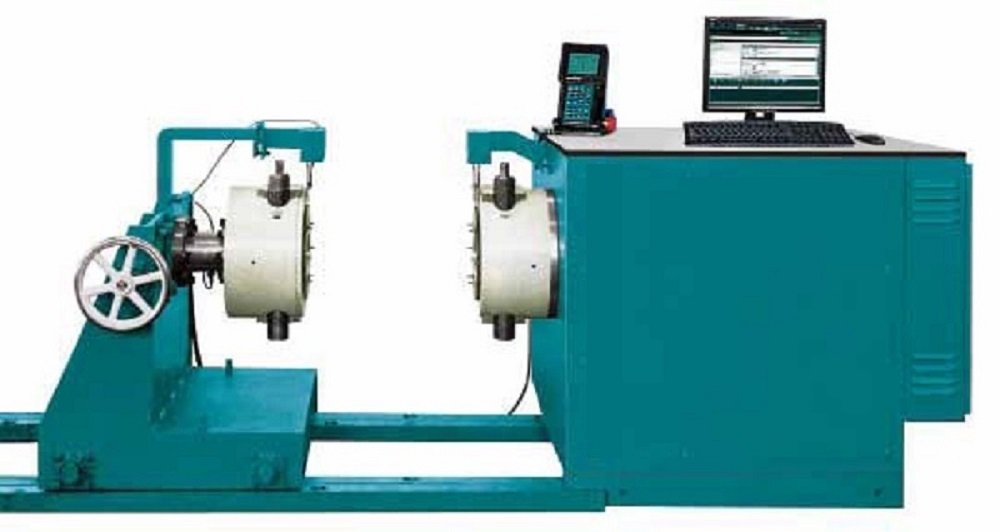The effectiveness of products or materials that experience rotational motion while in use must be validated by axial-torsional testing. The goal of torsional testing is to find out how a substance or product might react when stressed and twisted over and over again. When a polymer specimen is put under a certain tension or compression force, several torsion testing patterns are used to gauge its strength, effectiveness, and durability.
Here Is The Thing To Know More About The Testing.
Purpose Of Torsion Testing
Torsion testing is used to identify the behaviour that a substance or sample solution displays when bent or subjected to torsional stresses as a consequence of applied events that generate stress distribution about the axis. There are numbers that can be used to measure the ductility, torsional fatigue life, ultimate shear strength, yield shear strength, and modulus of rupture in shear.
These measurements are crucial in production because they can be utilized to replicate service conditions, examine the product’s design and quality and make sure it was made properly.
Different Types Of Torsion Testing
Torsion testing often takes one of 3 types: failure, proof, or operational. The purpose of this testing for failure is to determine the sample’s strength by twisting it until it breaks.
A confirmation test is made to watch the material over a predetermined time period while being subjected to a certain torque load. Ultimately, operational testing evaluates the material’s efficiency under the user’s anticipated service circumstances.
Depending on the properties that need to be found out, any of these types of tests can be done with either torsion stress or a mix of torsion and axial stress.
Different Materials For Testing
Torsion testing is beneficial or necessary for many substances because they encounter torques or torsional pressures in their usage. Materials used in the building, biological, and auto industries are some of the most likely to be twisted in different operations. Fasteners, tubes, beams, rods, and wires are popular forms of these substances, which can also be made of plastics, metals, polymers, wood, composites, or ceramics.
Torsion Testing Machine And Parts
A torsion testing machine is a tool that twists a specimen and measures the amount of force required to cause failure. Finding a material’s ultimate tensile strength (UTS) or mechanical properties can be done with the aid of torsion test equipment in development, research, and process optimization.
In other terms, it calculates the force necessary to distort an object. After applying tension, it detects the resulting torque. A tensile testing machine’s precise design is determined by its intended use; for instance, an industry test machine is frequently used to support larger pressures than a laboratory prototype. These are very important for companies because they help them figure out the quality of the materials.
The majority of torsion test machines have a torque reaction vessel and a strain head placed at a single end.
Torque cells for retaining the sample, a load cell for detecting the torque, and a lever arm make up a torsion testing device. Students typically pull a twist handle to force is applied to drive the machine’s gears.
It facilitates easy sample insertion and accommodates any change in sample length during tests by guiding a shaft longitudinally from input to output. An encoder can measure any tilt or movement in relation to a steady rotation. The angular displacement is shown on an analogue display, but the rotation angle is not immediately calculated.
Additionally, a single or both ends of the drivetrain are equipped with a gauge that measures torsion forces. For example, one metre might measure rotation and twist (torsion), while another might measure bending but not a modifier and backwards bending (torque).
Different Types Of Machines
This kind of mechanical behaviour is evaluated with the aid of torque test equipment. There are several Torsion testing equipment’s available depending on the needs of the sector. such as,
- Digital Testing Machines
- Horizontal Testing Machine
- Torsion Spring Testing Machine
- Vertical Testing Machine
- Torsional Stiffness Testing Machine
- Old Vertical Testing Machine
- Optical Fiber Testing Machine
- Axial Testing Machine
- Wire Testing Machine
Conclusion
Finding a device that meets all of your specifications and is within your price range is not something simple. Despite the fact that there are many multiple kinds of torsion testing devices on the market, it is advisable to hunt for efficient ones by picking a reputable manufacturer.




